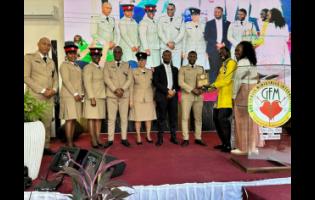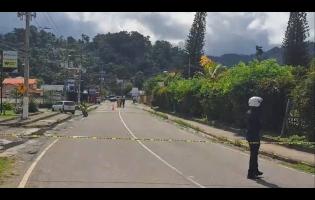Jamaican airspace safe, says experts
Despite several aircraft crashes worldwide since the start of the year, Jamaica's aviation authorities are assuring travellers that the country's air transport system remains safe, highly regulated, and well-equipped to prevent similar tragedies.
Nari Williams-Singh, director general of the Jamaica Civil Aviation Authority (JCAA), said Jamaicans should not be afraid to fly.
"The recent accidents are very unfortunate... but aviation still is the safest mode of transportation, and it is a highly regulated industry to maintain the highest safety and security standards," he said. The JCAA, which oversees the country's aviation regulations, is a signatory to the International Civil Aviation Organisation (ICAO), the United Nations body that sets global aviation safety standards. According to Williams-Singh, Jamaica rigorously follows ICAO's guidelines.
"We are obligated to meet the standards and recommended practices that are promulgated by this body," he said. "We do so through our Civil Aviation Act and regulations and through our regulatory oversight regime. We have a cadre of well-trained and qualified inspectors, and our work covers a number of activities--certification of aviation entities, certification and licensing of aviation professionals such as pilots, air traffic controllers, aircraft maintenance engineers. And there's ongoing surveillance that is done by the inspectorate to ensure that people continue to meet the standards."
Jamaica has seen its share of aviation tragedies. In September 2014, a private jet from the US lost contact with air traffic control and veered off course, crashing into the sea off the coast of Portland. The pilot and his wife, both experienced fliers, were killed. In 2016, a small aircraft crash-landed near Black River, injuring those on board. There were other crashes in St Elizabeth (January 2024) and Rocky Point, Clarendon (2021).
When asked how Jamaica has improved its aviation oversight since those incidents, Williams-Singh said that the country continues to strengthen its regulatory framework and surveillance efforts.
"There's an ongoing process to ensure conformance to these requirements. And our certificated professionals, pilots, mechanics, air traffic controllers ... they continue to meet the highest standards," he said.
Among the recent crashes was the mid-air collision of an American Airlines jet and a US Army helicopter over the Potomac River, near Washington DC, which killed 67 people. Williams-Singh, however, confidently asserted that Jamaica's air traffic control system is highly advanced and well prepared to prevent such incidents.
"We have very good equipment and very professional, qualified air traffic controllers that carry out their functions to the highest standard. So we do have a very safe, secure, and robust air traffic and overall air transport system and infrastructure." He also noted that weather-related aviation incidents, such as last week's crash of a Cessna 172 aircraft in Dominica, are mitigated through strict flight planning procedures.
"Air operators will have certain procedures that they have to follow," he explained. "In flight planning, they will know where there are significant weather features and whether to route around them. Our air traffic controllers have a significant role to play in that in terms of providing necessary guidance and instructions to the pilots as to how to navigate around these." Williams-Singh noted that the country has experienced a slight decline in air traffic, though not because of safety concerns.
Audley Deidrick, president and CEO of the Airports Authority of Jamaica, explained that "Jamaica suffered basically a two per cent reduction in traffic year on year".
"The negative travel advisories that have been put out by the United States--which is our main air traffic source market--have acted against the industry somewhat," he said. "There is also the issue of airlines themselves having challenges with fleet availability due to scheduled maintenance that has been brought on them because of engines and other issues. And so they have had reductions in available aircraft to serve their routes."
Despite the decline, Deidrick noted that Norman Manley International Airport actually saw a slight increase in traffic.
"As I said, when things happen in aviation, there's usually mass casualties, and so there's a shock value to it," he acknowledged. "But when you look at it in the grand scheme of things, it is still the safest mode of transportation."






































